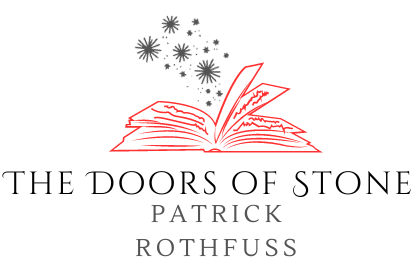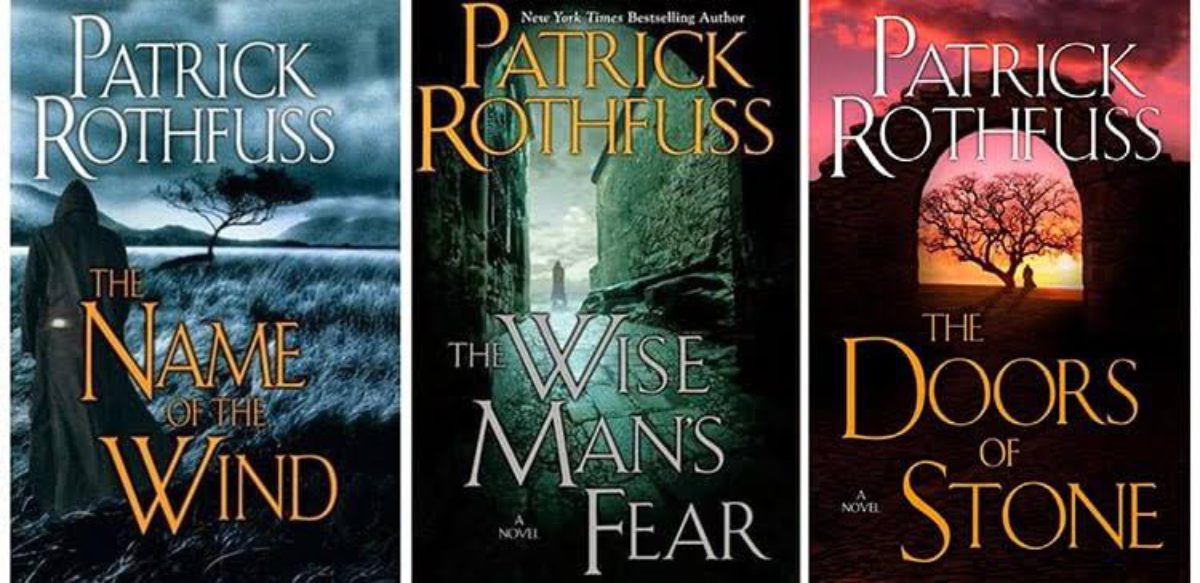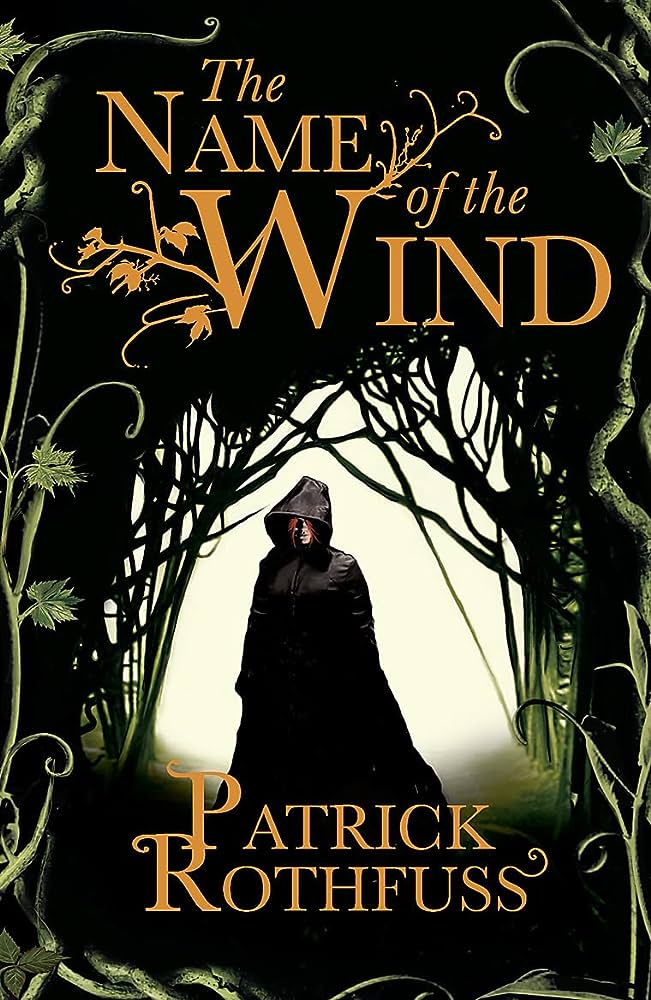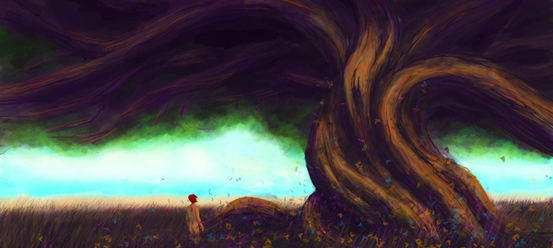In the realm of literature, the question of whether Patrick Rothfuss’s “The Kingkiller Chronicle” can be classified as a tragedy has sparked numerous debates and discussions. The series, comprised of “The Name of the Wind” and “The Wise Man’s Fear,” follows the life and adventures of its protagonist, Kvothe, who is both a hero and a controversial figure in the literary world. To determine whether Kingkiller is indeed a tragedy, we must first explore the elements that define this genre and then delve into the narrative to identify these elements.

Contents
- 0.1 Defining Tragedy in Literature
- 0.2 Understanding the Kingkiller Chronicle
- 0.3 The Tragic Elements in Kingkiller
- 0.4 The Impact of Tragedy on Readers
- 0.5 Subversion of Tragedy
- 0.6 Kvothe’s Character Evolution
- 0.7 The Role of Foreshadowing
- 0.8 Ambiguity in the Story
- 0.9 The Redemption Arc
- 0.10 The Tragic End or a Twist?
- 0.11 Alternative Interpretations
- 0.12 The Influence of Greek Tragedy
- 0.13 The Author’s Intent
- 0.14 Conclusion
- 1 FAQs
- 1.1 1. Will there be a third book in the Kingkiller Chronicle series?
- 1.2 2. How does Kvothe’s character differ from traditional tragic heroes?
- 1.3 3. What role does music play in Kvothe’s tragic journey?
- 1.4 4. Can Kvothe’s story be seen as a cautionary tale?
- 1.5 5. How has the Kingkiller Chronicle influenced modern fantasy literature?
Defining Tragedy in Literature
Tragedy, in literature, is a genre characterized by the downfall of a noble or admirable character, often due to a tragic flaw or external circumstances. The story’s events lead to a sense of catharsis in the audience, evoking pity and fear. Tragedies usually explore profound themes, such as fate, morality, and the human condition.
Understanding the Kingkiller Chronicle
“The Kingkiller Chronicle” takes place in a richly detailed fantasy world and revolves around the life of Kvothe, a gifted musician, and magician. The narrative unfolds as a series of recounted events from Kvothe’s life as he tells his story to a chronicler. This unique storytelling approach allows readers to gain insight into his character while experiencing the various ups and downs of his life.
The Tragic Elements in Kingkiller
The Tragic Hero
At the heart of any tragedy is the tragic hero, who has exceptional qualities and experiences a downfall. Kvothe fits this description perfectly. He is extraordinarily gifted in multiple disciplines, yet his life is plagued by misfortune and suffering.
Unfortunate Circumstances
Throughout the series, Kvothe faces a series of unfortunate events, including the tragic murder of his parents, his struggles with poverty, and his turbulent relationships. These events contribute to the sad nature of the narrative.
Hubris and Flaws
A classic element in many tragic tales is the protagonist’s hubris or character flaws. Kvothe’s pride and impulsiveness often lead him into dangerous situations, and these traits can be seen as contributing to his tragic arc.
The Impact of Tragedy on Readers
A well-executed tragedy can have a profound impact on readers. It can evoke powerful emotions, spark introspection, and serve as a cautionary tale. Kingkiller’s exploration of tragedy allows readers to connect with Kvothe on a deeper level.
Subversion of Tragedy
While Kingkiller exhibits many elements of a tragedy, it also subverts the traditional expectations of the genre. The narrative is layered with mysteries and ambiguities that keep readers guessing about Kvothe’s ultimate fate.
Kvothe’s Character Evolution
The development of Kvothe’s character is central to the story. His transformation from a young, hopeful student to a world-weary hero adds depth to the narrative. This character evolution is a hallmark of many tragic heroes.
The Role of Foreshadowing
Rothfuss employs foreshadowing in his storytelling, creating a sense of impending doom. The subtle hints and clues scattered throughout the narrative contribute to the tragic atmosphere.
Ambiguity in the Story
One of the most intriguing aspects of Kingkiller is its ambiguity. The blurred lines between fact and fiction in Kvothe’s narrative leave room for multiple interpretations, which can be seen as a nod to the complex nature of tragedy.
The Redemption Arc
The potential for redemption is another recurring theme in Kingkiller. Kvothe’s journey is marked by moments of hope, suggesting that his story may not follow a typical tragic trajectory.
The Tragic End or a Twist?
As readers await the release of the final book in the series, the question of whether Kvothe’s story will culminate in a tragic end or a surprising twist remains unanswered. This uncertainty adds to the series’ allure.
Alternative Interpretations
Readers and scholars have presented various interpretations of Kingkiller, some viewing it as a traditional tragedy, while others argue for alternative readings. The diversity of perspectives highlights the depth and complexity of Rothfuss’s work.
The Influence of Greek Tragedy
Greek tragedies, such as the works of Sophocles and Euripides, have had a lasting impact on literature. The elements of fate, morality, and character flaws evident in Kingkiller are reminiscent of the themes explored in these ancient classics.
The Author’s Intent
Understanding whether Kingkiller is a tragedy may ultimately depend on the author’s intent. Patrick Rothfuss’s vision for the conclusion of the series will shape the final judgment of its genre.
Conclusion
In conclusion, “The Kingkiller Chronicle” undeniably contains elements of tragedy, with Kvothe as a fitting tragic hero, and the narrative’s exploration of misfortune, character flaws, and ambiguous outcomes. However, the subversion of traditional expectations and the potential for redemption introduce complexity into the classification. As we await the final instalment in Kvothe’s tale, the debate on whether Kingkiller is a tragedy or something unique continues to captivate readers and scholars alike.
FAQs
1. Will there be a third book in the Kingkiller Chronicle series?
Patrick Rothfuss has announced that the third book, “The Doors of Stone,” is in progress. While no official release date has been confirmed, fans eagerly anticipate its arrival.
2. How does Kvothe’s character differ from traditional tragic heroes?
Kvothe’s character exhibits both the strengths and flaws of a tragic hero, but his story remains open to interpretation, making him unique among literary figures.
3. What role does music play in Kvothe’s tragic journey?
Music is a central element in Kvothe’s life and the narrative. It serves as both a source of joy and a reminder of his losses, adding depth to the tragic aspects of the story.
4. Can Kvothe’s story be seen as a cautionary tale?
Certainly, Kvothe’s experiences offer valuable lessons about pride, impulsiveness, and the consequences of one’s actions, aligning with the essence of a cautionary tale.
5. How has the Kingkiller Chronicle influenced modern fantasy literature?
Rothfuss’s series has made a significant impact on the fantasy genre, with its intricate world-building and complex characters setting new standards for contemporary fantasy literature.






